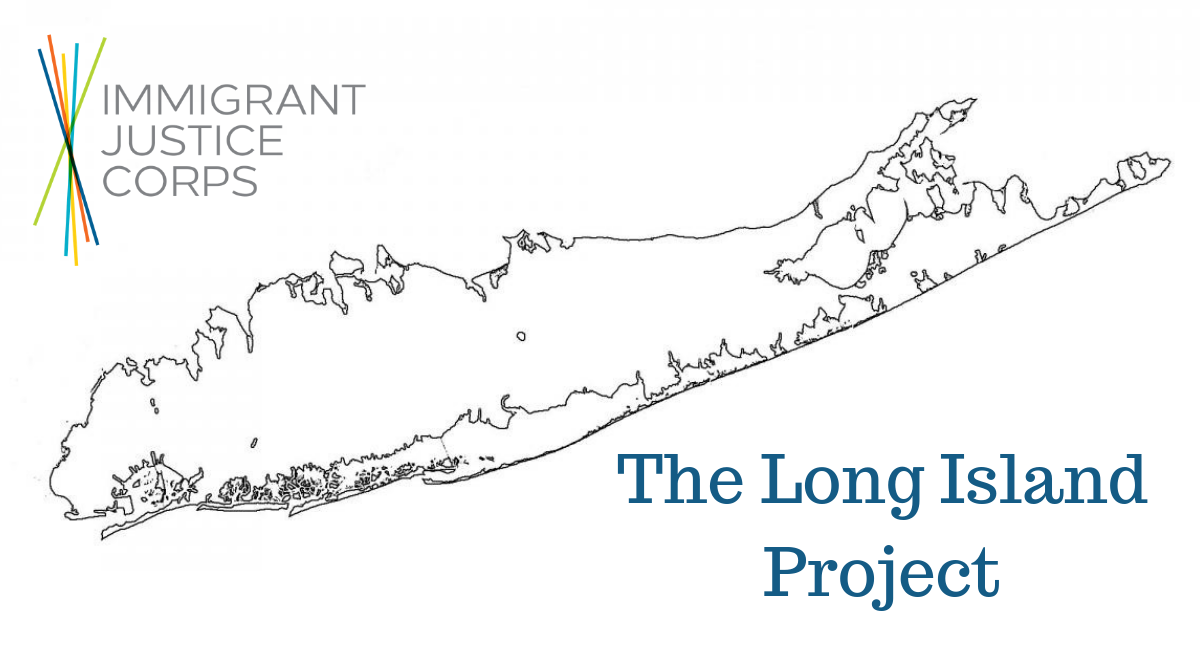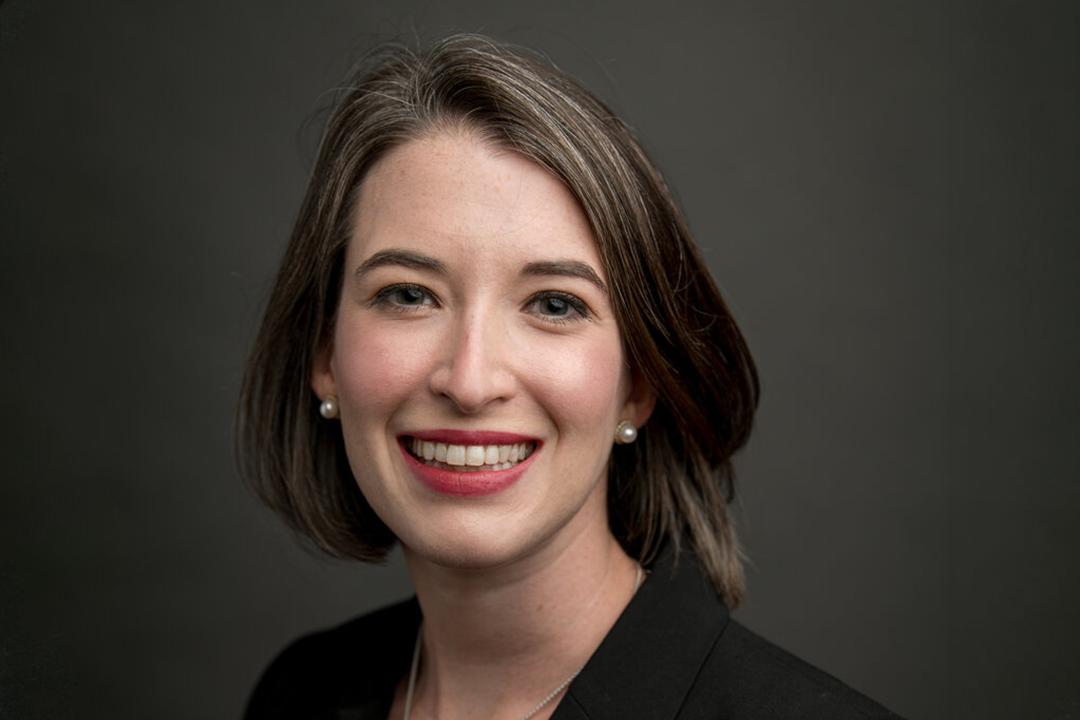Even before law school, Megan Elman, JD '19, knew she wanted to be involved in immigration law. As a college student, Ms. Elman taught English as a second language to recently arrived refugees in her home town of Buffalo, New York. That work opened the door to her interest in migration studies and working with immigrant communities. As a Jesuit Volunteer in Raleigh, North Carolina, she worked with noncitizen survivors of domestic violence and sexual assault on humanitarian immigration petitions. During law school, Ms. Elman interned with the immigration units of The Bronx Defenders and Public Defender Service of DC.
She believes in defending all noncitizens from deportation regardless of criminal history. She currently serves as an Immigrant Justice Corps Fellow, working in removal defense and post-final order relief for the CARECEN/IJC Long Island Project.
GW Law spoke to Ms. Elman about her interest in immigration law, her work with the Immigrant Justice Corps, and her advice to aspiring immigration attorneys.
Q: What drew you to immigration law?
Megan Elman: I am drawn to immigration law because it's all about family and community. The Immigration and Nationality Act is a standard statute - it seems impersonal. However, deportation tears apart families and communities - the impact is personal, large, and transcends borders. I come from an incredibly tight-knit family, so this work is close to my heart.
Q: How was your time at the Immigration Clinic?
ME: The Immigration Clinic is one of the things that drew me to GW Law. When I became a student-attorney during my 3L year, I worked on a removal defense case from beginning to end for the first time. In the clinic, I represented a family in removal proceedings, where the clients were seeking asylum. As the case progressed, I got to know my clients as we worked on their declarations, found evidence, and prepared for the individual calendar hearing that would determine if they could stay or not. It was an amazing experience because you can read about asylum law, but it's never going to be the same as sitting down, working through the facts of the case and presenting an argument and testimony to an immigration judge. I got to know my clients who are such wonderful people. I'm still in touch with them since graduating. It was a highlight of my time at GW Law.
"I am drawn to immigration law because it's
all about family and community."
Q: As an Immigrant Justice Corp (IJC) Fellow, what does your work look like?
ME: IJC's central mission is to increase access to counsel in immigration courts. Non-citizens who are in removal proceedings have no right to an appointed attorney. They have to find pro bono legal counsel or pay for an attorney themselves. This is really problematic because immigration issues are a very technical legal area with life and death consequences.
 Judge Dana Leigh Marks, former president of the National Association of Immigration Judges, says that being in immigration court is like hearing death penalty cases in a traffic court setting. Courts have massive backlogs and, when you go to court for master calendar hearings, you see huge lines of people waiting in hallways for their five minutes in front of the judge. If they miss their brief hearing, even if they are in the court but in the wrong room, then they are ordered removed in absentia. The courtrooms don’t always have interpreters and sometimes the judge or a detained noncitizen is videoed into the courtroom. It's just kind of chaos.
Judge Dana Leigh Marks, former president of the National Association of Immigration Judges, says that being in immigration court is like hearing death penalty cases in a traffic court setting. Courts have massive backlogs and, when you go to court for master calendar hearings, you see huge lines of people waiting in hallways for their five minutes in front of the judge. If they miss their brief hearing, even if they are in the court but in the wrong room, then they are ordered removed in absentia. The courtrooms don’t always have interpreters and sometimes the judge or a detained noncitizen is videoed into the courtroom. It's just kind of chaos.
Within that context, IJC provides new lawyers with training and community and places fellows at high need organizations across the country to work in removal defense. The hope is that, at the end of the fellowship, we will continue to work in immigration law.
As a fellow, I work for the Long Island Project, which is a collaboration between IJC and the Central Ameican Refugee Center in New York. We accept clients on a merit-blind bias. The more imminent the risk of deportation, the more likely we are to accept the case. Our intake team does not look at a client's chances of success, but rather looks at how close the client is to receiving a removal order if she/he does not have counsel. We handle a lot of asylum and special immigrant juvenile status cases, provide trainings and pro se clinics, and work on some cases where clients have already been ordered removed.
Q: How did you decide IJC was the right organization for you?
ME: What really attracted me to IJC was the mission, the community, and the training they provide their fellows. We have a supportive network of current and past IJC fellows, and I knew that I wanted, as a new lawyer, to have a community of people doing this work that I can learn from and collaborate with. In this work, you want to be surrounded by people who, after you've had a hard day, know exactly what you're talking about because they've had hard days like that. IJC also provides fellows a lot of secondary support with training, community events, and other resources.
As a newly admitted attorney, my goal is to learn as much as possible from my amazing supervisors, see as many types of cases as possible, and to grow as an attorney. I’m grateful to IJC because I was placed in an office where all of our clients receive zealous and quality representation, and we’re also committed to constant growth and learning.
Q: What advice would you give to law students wanting to work in immigration law?
ME: My advice is two-fold—take advantage of all DC has to offer and build your network.
As a student in DC, you have so many experiential learning opportunities. Intern, volunteer, or do a clinic so that when you graduate from law school you have practical experience. Practical experience is important in the public interest world. This work is hard, and we’re not paid Big Law salaries. Most public interest work, especially immigration law, has an emotional toll. The wins are amazing and the clients often inspiring. However, you don’t win every case. Organizations want to see that you have thought about everything this work entails. They want to be sure that you're not interested in any job, but instead that you've thought specifically about this job, their mission statement, and what the day-to-day is going to be like, and that you're all in.
Of equal importance is building a network of people you can rely on after law school ends. Find a group of friends that you feel really connected to and find mentors, whether professors or supervisors or other professionals, that you want to emulate. Reach out to them and be intentional in your relationships. I had mentors at GW Law like Professors Alberto Benítez, Paul Schiff Berman, and Paulina Vera. I also had incredible internship supervisors at The Bronx Defenders and the Public Defender Service of DC. Finding your network is important, both for support within your work and professional development. I'm happy to speak to any students, especially anyone interested in immigration law or public interest work!


